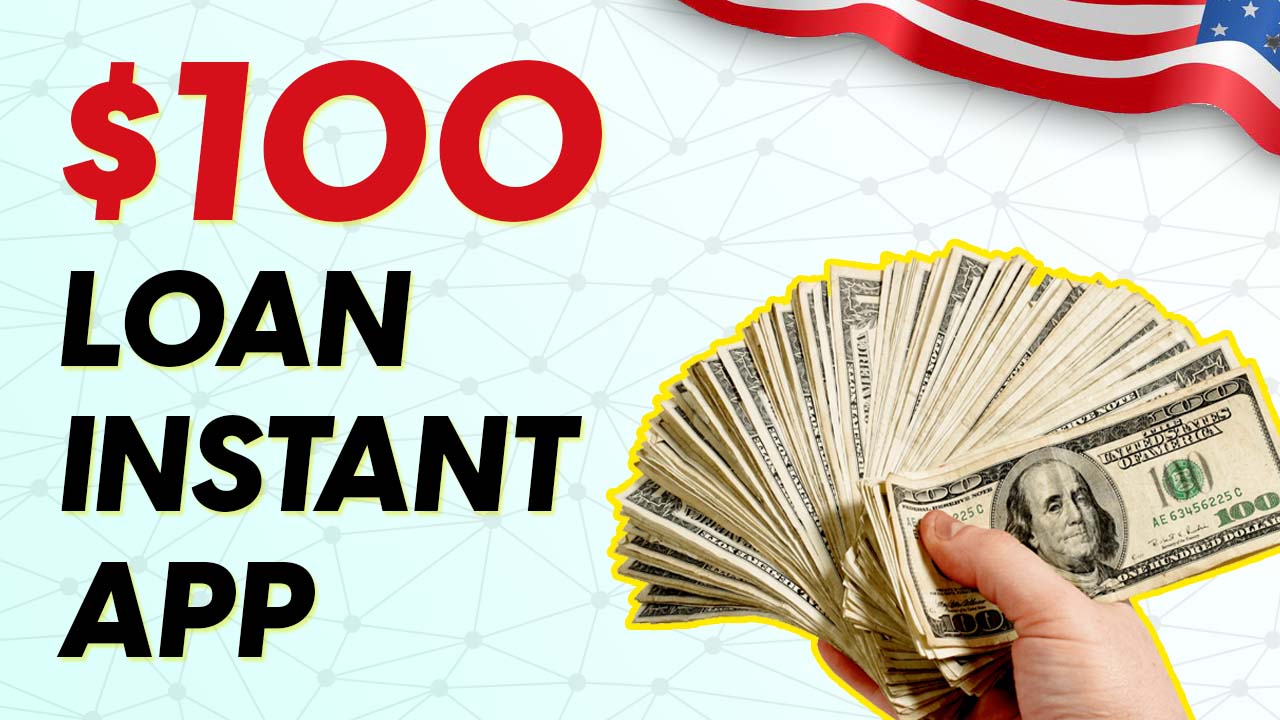Table of Contents
- 1 Common Scams in Fast Cash Loans: How to Spot Online Loan Fraud Tactics & Avoid Payday Traps
- 2 Introduction
- 3 Understanding Fast Cash Loans
- 4 Common Scams in Fast Cash Loans
- 5 Online Loan Fraud Tactics: How They Work
- 6 Instant Loan Red Flags to Watch For
- 7 Real-Life Examples of Emergency Loan Scams
- 8 How to Avoid Payday Loan Scams Effectively
- 9 Legal Protection & Reporting Loan Fraud
- 10 Final Thoughts
- 11 FAQs
Common Scams in Fast Cash Loans: How to Spot Online Loan Fraud Tactics & Avoid Payday Traps
Table of Contents
- Introduction
- Understanding Fast Cash Loans
- Common Scams in Fast Cash Loans
- Online Loan Fraud Tactics: How They Work
- Instant Loan Red Flags to Watch For
- Real-Life Examples of Emergency Loan Scams
- How to Avoid Payday Loan Scams Effectively
- Legal Protection & Reporting Loan Fraud
- Final Thoughts
Introduction
Common scams in fast cash loans are rising across the U.S. as more people search online for quick cash solutions. The convenience of same-day loans is now matched by an explosion of fake lenders, phishing traps, and identity theft schemes.

Loan Agency Singapore
If you’ve ever searched for urgent loans online, chances are you’ve come across fake websites. These schemes are increasingly difficult to identify. Many are expertly designed using online loan fraud tactics that clone real lenders or redirect users to malware.
Why These Scams Are Spreading
- Rising inflation and unemployment drive desperation
- Many borrowers skip due diligence for instant approvals
- Fake lenders now use AI chatbots, cloned domains, and social media ads
In this post, we reveal major instant loan red flags, showcase how victims are trapped, and explain how to avoid payday loan scams—so you protect both your money and identity.
Understanding Fast Cash Loans
Fast cash loans are short-term financial products that help borrowers cover emergencies such as medical bills, rent, or car repairs. They often promise funds within 24 hours—even without credit checks or employment verification.
Types of Fast Cash Loans
- Payday Loans: Short-term, high-interest loans due on your next payday
- Title Loans: Borrow against your car title
- Installment Loans: Larger loans repaid over several weeks or months
- Cash Advance Apps: Instant loans based on future income (e.g., Earnin, Brigit)
Benefits
- Funds within hours or same-day
- Minimal documentation required
- Accessible for bad credit borrowers
Risks
- Triple-digit APRs (Annual Percentage Rates)
- Predatory repayment terms
- High likelihood of fraud exposure
Legit vs Scam Comparison
| Feature | Legit Fast Cash Loan | Scam Loan Offer |
|---|---|---|
| License & Regulation | Registered with state or federal regulators | No licenses, vague or hidden contact info |
| Loan Terms | Clearly stated APR, fees, repayment dates | No terms disclosed until after application |
| Website Security | HTTPS secure site, verified reviews | No HTTPS, fake reviews or no reviews |
| Upfront Fees | Never requested | Requires payment to “unlock” the loan |
| Customer Support | Verified phone/email support available | Only reachable via WhatsApp or Gmail |
Examples of Real Lenders
You may recognize real providers like LendingTree, NerdWallet, and OppLoans. These platforms are licensed, regulated, and offer transparent borrowing options. Always verify the official domain before entering personal information.
Fast cash loans can be helpful in emergencies—but they also open doors to fraud. In the next section, we explore common scams in fast cash loans and how scammers manipulate your urgency for financial gain.

Common Scams in Fast Cash Loans
Let’s explore the most common scams in fast cash loans you’re likely to encounter when seeking emergency credit online.
1. Advance Fee Loan Scam
You’re “approved”—but only if you send money upfront via gift card, crypto, or PayPal. Real lenders never do this.
2. Fake Lender Websites
Scammers mimic real lenders with cloned websites. They use fake badges, logos, and reviews to trick you into applying.
3. Phishing via SMS or Email
You receive a message saying you’re pre-approved. You click the link, enter your details, and become a victim of identity theft.
4. Loan Flipping
You’re offered a new loan to refinance an older one. But the new terms trap you into a cycle of rising debt.
5. No-Repayment Trick
Some scammers promise “no repayment for 6 months,” but vanish after collecting your bank login or debit card details.
🛡️ Impact of Emergency Loan Scams
- Severe credit damage
- Lost wages or savings
- Bank account compromises
- Long-term identity theft
These emergency loan scams target those in urgent need. You must stay alert and question anything that sounds too easy or too fast.
Online Loan Fraud Tactics: How They Work
Online loan fraud tactics evolve each year. Scammers now combine tech tools, social platforms, and fake apps to manipulate victims.
A. Fake Loan Apps
These apps mimic legitimate lenders but steal your info. Check app reviews, permissions, and the developer’s website before downloading.
B. Clone Sites with Doctored URLs
Some sites look identical to real lenders, but with a typo in the URL—e.g., lendtngtree.net instead of lendingtree.com.
C. Spoofed Calls from “Bank Reps”
Scammers fake phone numbers and act like legit banks. They pressure you into giving private info immediately.
D. Social Engineering in Facebook Groups
Fraudsters pose as happy clients or “agents” in finance groups. They send DMs offering fake instant loan approval.
🕵️ Key Tactics Used in 2025
| Tactic | Description | Example |
|---|---|---|
| Phishing Links | Clickbait messages or ads lead to fake forms | “You’ve been approved—click here!” |
| URL Spoofing | Misleading domain names that look real | oppIoans.com instead of opploans.com |
| Social Media Posing | Fake profiles acting as past borrowers | “I got $2,000 in 5 mins!” |
| Fake Apps | Disguised malware on app stores | Unverified app claiming instant cash |
Understanding these online loan fraud tactics helps you detect traps and stop them before they succeed.
Instant Loan Red Flags to Watch For
Before sending any documents or bank info, scan for the following instant loan red flags that often signal fraud.
🚩 No Credit Check Promised
All licensed lenders review creditworthiness—even if they offer bad credit loans. Scammers skip this entirely.
🚩 Upfront Payment Requested
If you’re asked to pay an application fee, insurance, or “loan release charge,” you’re likely talking to a scammer.
🚩 Unprofessional Contact Channels
Gmail addresses, WhatsApp messages, or broken English are all major warning signs. Legit lenders use branded email domains.
🚩 Unsecure Websites (No HTTPS)
If a site isn’t secured with HTTPS, avoid it. Any form you fill out is easily intercepted.
🚩 “Guaranteed Approval” Claims
No lender can guarantee approval without checking your ID and finances. This is classic bait for scam traps.
🔐 How to Stay Safe
- Use verified lenders like OppLoans or LendingTree
- Check Better Business Bureau profiles
- Read reviews across Google, Reddit, and Trustpilot
- Never share personal info over social media DMs
Spotting these instant loan red flags gives you the power to protect your identity and finances from evolving threats.
Real-Life Examples of Emergency Loan Scams
Here are a few real-world cases where emergency loan scams caused serious financial and identity damage:
Case 1: The Advance Fee Trap (Texas, 2024)
A single mom applied for a $1,000 loan. She paid a $100 “release fee” but never received the funds. The website disappeared, and her identity was stolen.
Case 2: WhatsApp Scam Agents (California, 2023)
Victims joined a financial help group on Facebook where “agents” promised fast loans. After collecting upfront fees, these agents blocked all communication.
Case 3: Fake App on Google Play (Florida, 2025)
An app named “FastLoan USA” with over 5,000 downloads harvested contact lists and SMS history. Victims later faced blackmail threats using stolen personal information.
These cases reinforce why understanding how to avoid payday loan scams is critical to protecting your money and identity.
How to Avoid Payday Loan Scams Effectively
Avoiding payday loan scams takes knowledge and caution. Here’s a checklist to help protect yourself:
- ✅ Research Lenders: Use verified platforms like ConsumerFinance.gov to confirm licenses and view complaint history.
- ✅ Check for Contact Details: Legitimate lenders provide physical addresses, phone numbers, and professional email domains.
- ✅ Read Reviews: Search “[Lender Name] + reviews + scam” on Google before applying.
- ✅ Use a Credit Union: Many credit unions offer emergency loans with fairer terms than typical payday lenders.
- ✅ Avoid Cash Transfers: Never send money via Cash App, Zelle, or gift cards to secure a loan.
Following these tips will drastically reduce your risk of falling victim to common scams in fast cash loans.
Legal Protection & Reporting Loan Fraud
If you become a victim of a scam, take these immediate steps to protect yourself and pursue justice:
Report to Trusted Agencies:
- FTC Complaint Assistant
- Consumer Financial Protection Bureau
- Local police department and state attorney general’s office
Freeze Your Credit:
Contact the major credit bureaus to prevent further unauthorized credit activity:
| Credit Bureau | Website | Service |
|---|---|---|
| Equifax | equifax.com | Credit freeze & fraud alerts |
| Experian | experian.com | Credit monitoring and freeze |
| TransUnion | transunion.com | Fraud alert and credit freeze |
Document Everything:
Keep records of all communications: screenshots, emails, texts, and scammer contact details. This documentation can help law enforcement and credit agencies.
Legal protections vary by state, but many allow victims to sue scammers under fraud and identity theft laws. Prompt action improves your chances of recovery.
You might find these helpful:
- Top 10 Shocking PPP Loan Frauds List That Exposed Massive Scams
- PPP Loan Fraud — 2025: Shocking Cases, Penalties & How to Avoid Jail Time
- Top 10 Smart Loan Fraud Protection Tips to Safeguard Your Finances Today
- Is Loan Legitimate? Discover 5 Powerful Warning Signs of Dangerous Scams
- Top 5 Safe Online Loan Lenders: Trusted, Secure & Reputable Digital Loan Platforms for Fast Approval
Final Thoughts
Common scams in fast cash loans continue to grow more convincing—but they rely on victims being uninformed or rushing decisions. Understanding online loan fraud tactics and recognizing instant loan red flags can save you thousands of dollars and avoid personal stress.
If you’re in need of emergency funds, always use verified platforms and double-check the legitimacy of any offer. Knowledge is your best defense against emergency loan scams.
Most importantly, share this article with others who might be vulnerable. Knowing how to avoid payday loan scams could save someone you love from becoming a victim.
FAQs
What are common scams in fast cash loans?
Scammers use fake loan offers, upfront fee tricks, and identity theft to exploit people needing emergency funds quickly.
How can I recognize emergency loan scams?
Emergency loan scams often include demands for upfront payments, no credit checks, unverified websites, and unrealistic promises.
What are the biggest online loan fraud tactics in 2025?
Tactics include clone websites, fake mobile apps, phishing via email/SMS, and scammers pretending to be legitimate lenders on social media.
What instant loan red flags should I look out for?
Watch for no-verification promises, unsecured websites, fake reviews, and lenders asking for fees before disbursing funds.
How do I avoid payday loan scams safely?
Use verified lenders, research their license on ConsumerFinance.gov, avoid quick fee requests, and check for HTTPS on websites.
Are fast cash loans from Facebook lenders real?
In most cases, no. Scammers frequently use Facebook comments and groups to lure victims with fake emergency loan scams.
Can I trust loan offers through SMS or WhatsApp?
No. Most SMS or WhatsApp loan offers are part of online loan fraud tactics aimed at stealing your personal and banking info.
What should I do if I get scammed by a fake lender?
Immediately report it to the FTC, contact your bank, freeze your credit, and document all evidence.
Is it legal for lenders to charge upfront fees?
In many countries, it’s illegal for lenders to demand money before issuing loans. Always research local lending regulations.
Why are instant loans so risky in the U.S. today?
Due to economic stress, many borrowers are desperate, making it easy for fraudsters to deploy emergency loan scams using trusted-looking channels.

